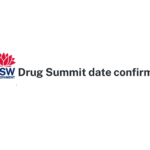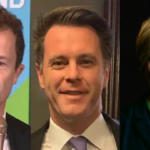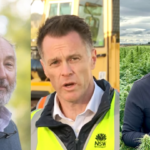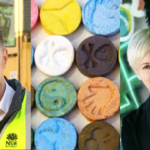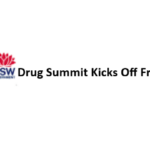Verdict Is In: The 2024 NSW Drug Summit Was Designed to Be an Abject Failure
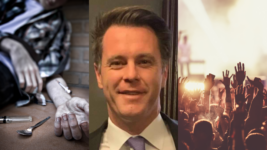
“Nothing worthwhile ever comes out of an echo chamber,” said NSW premier Chris Minns, as he opened two days of NSW Drug Summit proceedings on Gadigal land at Sydney’s ICC on 4 December 2024.
“We want different perspectives. We want people to openly and honestly tell us their perspectives – their lived experiences,” the state’s top minister continued.
The irony in the NSW Labor leader’s statement, however, was apparent by the end of the two-day event, as, after having attended the Sydney hearings, prominent drug law reformists spoke out about their disappointment in the conference that they now consider was set up to fail, and one obvious aspect to this was the dearth in diverse voices as part of the program.
The key drug law reform that those at the summit sought to progress was drug decriminalisation, or the removal of criminal sanctions against the offence of drug possession and the use of illicit substances.
The relatively recently released reports of the NSW Ice Inquiry and the NSW Coronial Inquiry into Music Festival Deaths both recommend ending the criminalisation of people who use drugs. And since late October last year, decriminalisation has been operating in the Australian Capital Territory, and the sky has not fallen in.
Yet, as word got around the convention centre right before the event opening, that NSW health minister Ryan Park had been out the front, asserting to the press that the Minns government did not “have a mandate for decriminalisation”, the fears that the summit was merely an act designed to placate the groundswell of support for it to be held, were being realised.
So, broad was the overall disappointment at the end of the 2024 NSW Drug Summit that most participants are not expecting any robust package of reforms to eventuate. And rather, what had further become apparent by the close of proceedings last Thursday was despite NSW Labor promising to tackle illicit drugs, it has done its utmost to avoid this.
Set up to fail
“A lot of us feared that the drug summit was set up to fail and unfortunately, the experience of the last two days has confirmed that that was probably the case,” said NSW Greens MLC Cate Faehrmann, in a statement released late on 5 December. “It should never have been held over four disjointed days to finish a few weeks before the end of the year.”
Unlike its predecessor that was held over five consecutive days at NSW Parliament House in 1999, this year’s drug summit was held over four days: the first was held in the regional town of Griffith on 1 November, the second day involved hearings in Lismore on 4 November, while the last two days of proceedings took place in Sydney at the convention centre over 4 and 5 December.
“Attendees were furious when they found out that the health minister ruled out decriminalisation behind their backs during a press conference on the first day of the Sydney summit,” added Faehrmann, the NSW Greens drug law reform spokesperson. “It only incensed them further when he assured them that ‘everything was on the table’ during his address the very next day.”
Pioneers and snake oil salesmen
Attendees held high hopes for the summit in line with the first such meeting convened by the NSW Carr government. The 1999 NSW Drug Summit continues to be remembered as a breakthrough moment in terms of approaching drug law reform with an outlook to reducing the associated harms, rather than the long-term zero tolerance approach of punishing people for personal drug use.
Prior to the 1999 summit, then NSW premier Bob Carr had returned from a trip to the US, where he had borne witness to the heavy-handed approach to illicit substances taken by Chicago law enforcement, and he returned to Sydney with the goal of reproducing that locally, as, at this time, the city was undergoing a heroin overdose crisis.
But this all changed when this state’s veteran drug law reformist Dr Alex Wodak turned the Labor statesman onto the benefits of taking a harm reduction approach to illicit substances.
And the top minister not only went on to slot in a weeklong summit at Parliament House, but he further enacted laws to facilitate the establishment of the Uniting Medically Supervised Injecting Centre Kings Cross.
So, when the Minn’s led opposition stipulated in its 2023 NSW Labor Platform that “NSW Labor will hold a drug summit of experts and key stakeholders upon forming government”, this wasn’t just a commitment to the performative process that has since occurred, but rather, the party was invoking the precedent of 1999, which was supposed to portend robust drug law reforms.
But the new premier didn’t progress this position on taking office in March last year, rather it wasn’t until the Murdoch press quizzed him at the end of August 2023 that he confirmed that he didn’t consider he had a “mandate” to progress decriminalisation and further, the publication was told that the drug summit had been delayed until some unscheduled time in the future.
This sparked a formidable campaign led by Uniting NSW.ACT, the NSW Council for Civil Liberties and the NSW Greens calling on the Minns government to hold the NSW Drug Summit, which then resulted in a set of disconnected dates, unorganised proceedings and questionable guest lists, all designed, it now appears, to get the controversial event out of the way prior to the holiday period.
A perfect opportunity lost
Harm Reduction Australia executive director Annie Madden told those gathered at the NSW Drug Summit last week, that the 1999 event, of which she addressed, was a “lifechanging experience”, as the forum was unprecedented in the fact that NSW politicians were present in order to listen to the testimonies of people who use drugs.
“So, to the premier, to the health minister and other government members, I say… please seize this moment to lead real change that will save lives and reduce harm,” the reformist further set out at the opening of the summit.
But with the health minister having shot down the priority reform of drug decriminalisation, the moment that had been afforded to progress the types of robust drug law reforms that have been enacted in the ACT, which include drug decriminalisation, legal home use and cultivation of cannabis, as well as the provision of drug checking services, or pill testing, has now been lost.
Instead of progressing decriminalisation as in the nation’s capital, the Minns government quietly rolled out the Early Drug Diversion Initiative (EDDI), in February, which is a watered-down version of decrim that current NSW Liberal opposition leader Mark Speakman recommended during the last term of parliament, when his colleagues were trying to avoid acting on drug law reform.
The EDDI provides NSW police officers with the discretion to issue up to two on-the-spot fines to civilians found in possession of a personal quantity of drugs, prior to an arrest. And the subject of the fine can avoid paying the amount stipulated by instead attending a one-long drug counselling session over the phone.
However, as of 12 August, officers had exercised their discretion in regard to issuing fines instead of arresting people over the offence of personal drug possession on a total of 436 times. This was compared with the 6,332 instances in which officers didn’t take the option of diverting the person. And of the 436 diverted individuals, only 21 decided to attend the counselling session.
Faehrmann also pointed to the “palpable anger at the lack of diversity and representation” at the event, particularly in “terms of First Nations voices”, and she questioned how the disparities of the local war on drugs were supposed to be addressed, when those disproportionately targeted by police, Aboriginal people, LGBTIQA+ people and the young, weren’t adequately represented.
“After this embarrassing debacle, the government will be under a lot of pressure to act on the key recommendations from the summit,” Faehrmann continued, “instead of just the low-hanging fruit that they’d probably already decided on before the summit.”
Yet, after the Minns government’s success in diminishing the potential the current summit had, it’s more than likely that NSW Labor will follow the lead of the NSW Coalition in the wake of the release of the findings of the inquiry into the drug ice, which was then to avoid responding for so long that no expectations were being held when it finally delivered its disappointing response.


